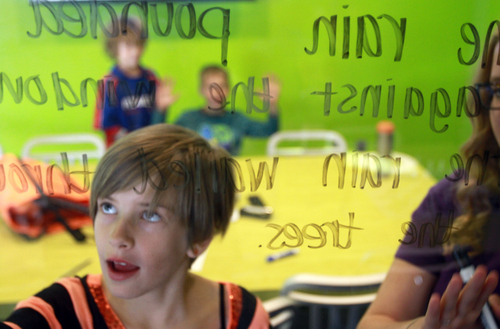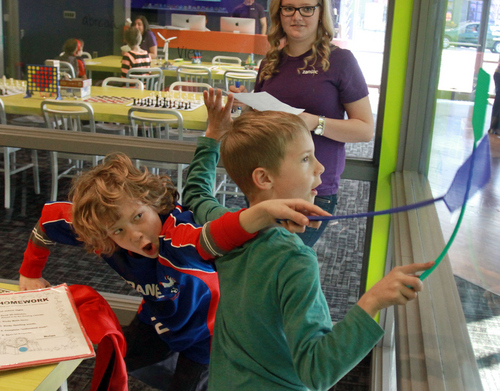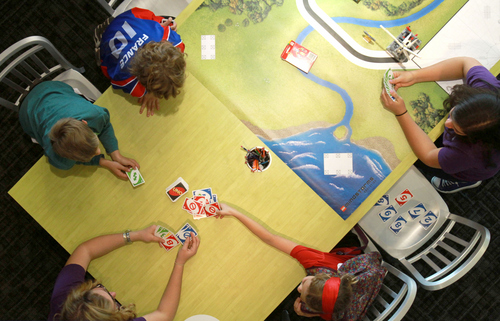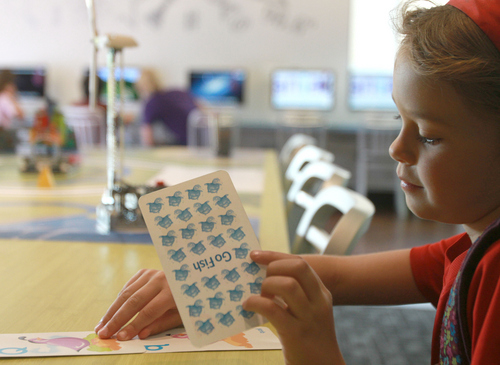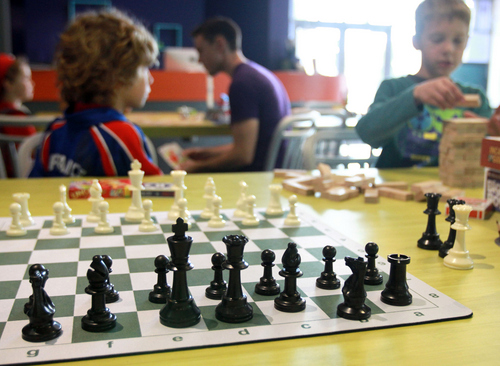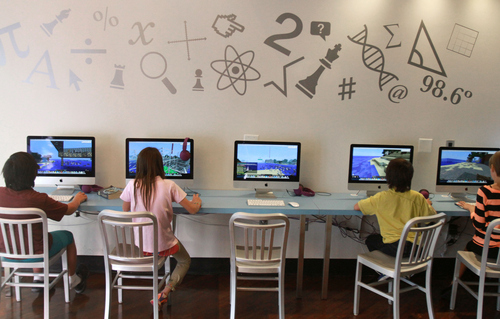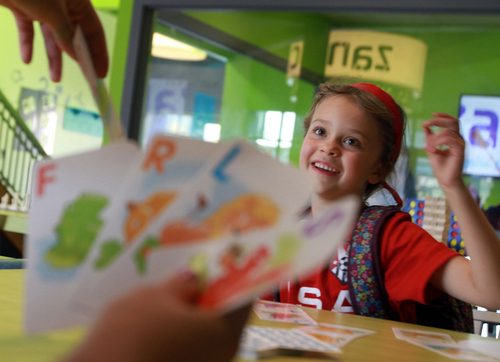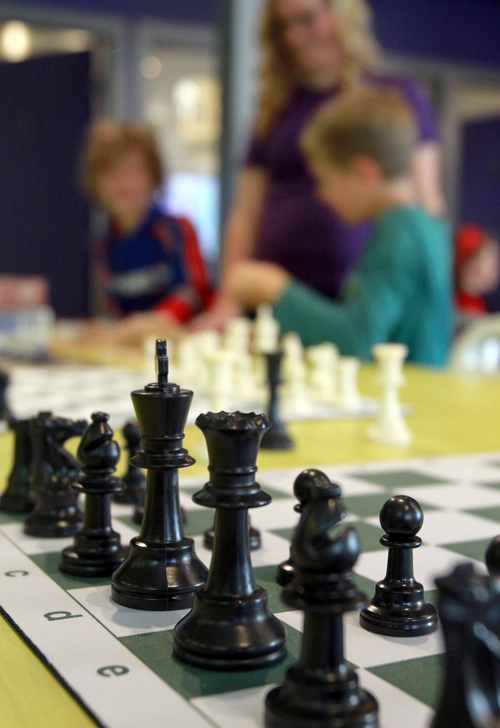This is an archived article that was published on sltrib.com in 2013, and information in the article may be outdated. It is provided only for personal research purposes and may not be reprinted.
Kids huddle at computers lining a wall covered in large decals of chess pieces, DNA and mathematical symbols, the game of Minecraft on their screens.
It's not a video arcade they've walked into, but rather Zaniac, a private afterschool company with locations in Park City and Sugar House that focuses on helping kids improve their comfort and skill level with STEM subjects — science, technology, engineering and math.
"Our overriding objective is to get kids excited and engaged," said Zaniac CEO Paul Reddy. "If kids view this as a fun place to come, they won't notice they're learning."
Companies such as Zaniac have popped up across the valley in the past several years. They cater to the demographics of child-rich Utah — the youngest state in the nation with an average age of 29 compared to 37 nationally — claiming to fill in gaps created by a constantly squeezed education budget while preparing students to become tomorrow's high-tech labor pool.
"Our workforce has to be educated and have a good work ethic, and Utah is outstanding in both of those aspects," said Bruce Kulpaca, associate broker and senior associate with Coldwell Banker Intermountain, whose Canadian client Grade Power Learning has opened a location in Riverton.
Kumon centers also have taken notice of the large child population (31 percent of the state's nearly 2.8 million residents, according to the U.S. Census) and have 10 centers in Utah — six in the Salt Lake area, three in Davis County and one in Park City.
"Our goal is to help children reach their full potential in math and reading, but it's much more than those two skills," said Matt Lupsha, manager with Kumon North America. "We want to help them develop stronger concentration, better test-taking skills, initiative, discipline and the ability to figure things out on their own."
Grade Power Learning, Zaniac and Kumon all employ similar teaching philosophies, using their own curriculum and lessons plans rather than focusing on helping with homework assignments.
Almost all such places offer pre-tests and post-tests to show progress, but it's important that parents know exactly what they're paying for when they register their children for such programs, said Kathleen J. Brown, director of the University of Utah Reading Clinic.
"Parents need to be aware that they may not see an impact on particular academic skills from that kind of experience," Brown said. "Parents need to be aware their kid isn't going to be a tiny engineer by working with robots for six weeks, but it can certainly be a productive experience."
She cautions parents to be aware of what methods and approaches a company takes, and how well-trained their staff is as well.
"I've seen people spend thousands of dollars on their child for nothing because parents will rip off their right arm to help their kids, but some places offer foolish therapies that have no basis in research and no data to support their claims," Brown said.
Reddy said students at Zaniac have shown improvement fairly consistently — 80 percent of their students improved five points on a 30-point scale, and 65 percent improved 10 points, he said. He also said that 60 percent of parents who buy one program buy a second one within two weeks.
He recognizes that his programs come with a cost, anywhere between $150 and $299 for nine hours of instruction over six weeks, but he says the improvements are worth it.
"We help students build confidence in subjects," Reddy said.
The company also has started a program called Edison Club that picks students up from school and keeps them until 6:30, working on homework and then working with robots or using computer programs to make a music video. That program is $75 per time for a drop-in session or $200 a month for one day a week or $250 for two days a week, and provides additional homework help and buddy passes.
"This economy is going to have a crying need for high-tech jobs," Reddy said, "and STEM education is what we need to meet that long-term goal."
Twitter: @sheena5427 —
After-school programs
Programs • Zane Math, Lego Robotics, Minecraft Exploration, Chess, Touch Typing and Homework Help
Cost • Ranges from $150 to $299 for nine hours of instruction over six weeks
Programs • Reading and math
Cost • Ranges from $95 to $120 per month per subject and includes two weekly center visits and take-home work for five days
Programs • Little Readers: Ages 3-6, Beyond Tutoring: Grades 1-8, Advantage: Grades 9-12, College Prep
Cost • Initial assessment costs $249, with a current special through Dec. 31 for $149. Cost for elementary students is $360 monthly for eight hours and for high school students is $540 per month for 12 hours.
Programs • Getting Ready for 1st Grade, Early Steps, Next Steps, Higher Steps, Wilson Reading System
Cost • Assessment is $50, intervention is on a sliding-scale fee ranging from $4 per session to $40 per session based on income and number of children in the family.



